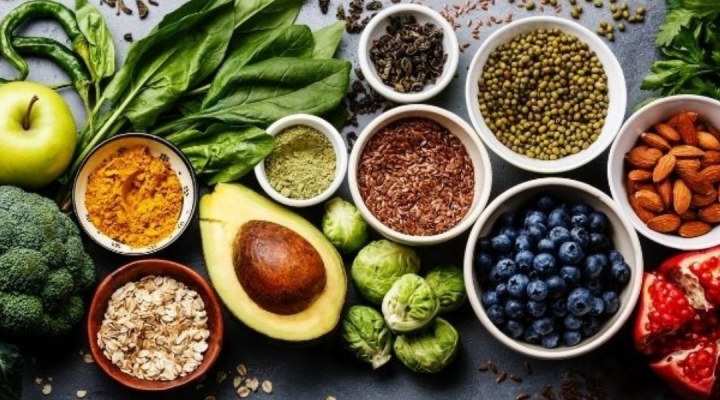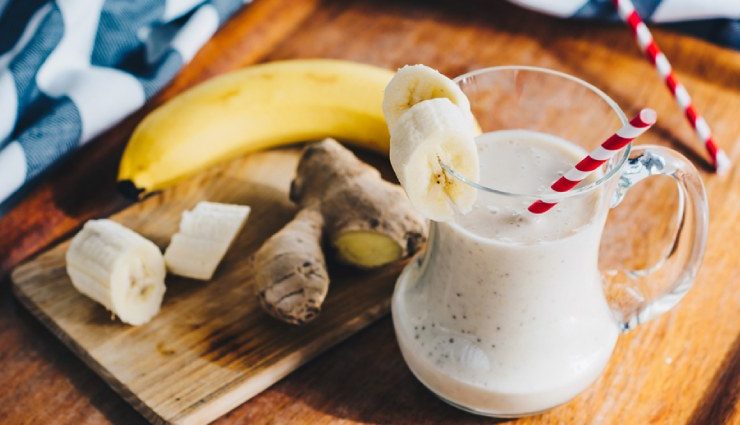It’s not unusual for occasional stomach acid to back up into the esophagus, but some people may experience heartburn, bloating, and belching every time they eat. Almost 20% of people have gastric reflux disease. This disease is a chronic reflux of stomach acid into the esophagus, which a doctor diagnoses. Diet plays a vital role in controlling the symptoms of acid reflux and is the first line of treatment for people with acid reflux. For this reason, it is helpful to know the foods and fruits against stomach acid to relieve the symptoms of this disease. To learn more about these foods, stay with us until the end of the article.
Causes of acid reflux
Usually, the esophageal valve or sphincter (the muscular tube that allows food to enter the stomach and prevents it from flowing back into the esophagus) protects the esophagus from stomach acid. If this valve is loose, food can enter the esophagus and cause acid reflux. Although common, it may be associated with side effects and troublesome symptoms such as heartburn, pain, and irritability.
Foods against stomach acid
The food you eat affects the amount of acid in your stomach. Therefore, eating the right food and eating anti-stomach acid fruits play a significant role in preventing the return of stomach acid to the esophagus. Of course, none of these foods cure the disease, and their use is only to relieve the symptoms of the disease.
1. Fibers and vegetables
Different types of fiber prevent overeating by making you feel full, so it is better to eat foods with healthy fiber, including:
- Whole grains such as oats, couscous, and brown rice.
- Root vegetables such as sweet potatoes, carrots, and beets.
- Green vegetables include green beans, broccoli, asparagus, and other vegetables.
- Cauliflower, potato, and cucumber.
2. ginger
Ginger has natural anti-inflammatory properties and is suitable for treating heartburn and other digestive problems. Add grated or chopped ginger root to food and smoothies, or drink ginger tea to relieve your symptoms.
3. Oatmeal
Oatmeal is an ideal breakfast and an excellent source of fiber. A diet rich in fiber reduces the possibility of acid reflux. Whole grain bread and whole grain rice are other fiber options.
4. Alkaline foods

Fruits other than citrus fruits, such as melons, bananas, apples, pears, fennel, and nuts, cause acid reflux symptoms less than acidic fruits (such as citrus fruits).
5. Juicy foods
Foods that contain a lot of water dilute and weaken stomach acid, including:
- a soup based on broth;
- Herbal Tea.
And vegetables and fruits against stomach acid, such as:
- celery ;
- Cucumber;
- Lettuce;
- watermelon
6. Lean meat and seafood
Meats such as chicken breast and turkey, fish, and seafood are low in fat and reduce acid reflux symptoms. You can use these meats grilled, baked, or boiled.
7. egg white
Egg whites are a good option, but egg yolks are fat and may cause acid reflux symptoms.
8. Healthy fats
Avocados, walnuts, flax seeds, olive oil, sesame oil, and sunflower oil are good sources of healthy fats. We suggest that you reduce the consumption of saturated and trans fats and use more beneficial unsaturated fats instead.
9. Lion
Milk is usually suitable for eliminating heartburn. Of course, note that there are different types of milk, such as high-fat, low-fat, and fat-free milk. The fat in milk can aggravate acid reflux, but skim milk acts as a temporary buffer between the stomach lining and its acidic contents and immediately relieves heartburn symptoms. Low-fat yogurt also has the same soothing effect and contains many probiotics.
10. Apple vinegar
Although not enough research has been done on the effect of apple cider vinegar on acid reflux, many people claim that this vinegar is effective in relieving the symptoms of acid reflux. However, never take this concentrated vinegar because its strong acid can irritate the esophagus. Instead, dissolve some apple cider vinegar in warm water and drink it with food.
11. Lemon juice
Lemon juice generally has a lot of acidities. Still, a small amount of it, together with warm water and a little honey, has an alkaline effect that neutralizes stomach acid. Honey also has natural antioxidant properties that protect cells.
Identifying the underlying factors of the complication
Heartburn is one of the common symptoms of acid reflux. Heartburn may occur in the stomach or chest after eating a meal or certain foods. In gastric reflux disease, the acid movement toward the esophagus causes vomiting.
Acid reflux has other symptoms, including:
- dry cough ;
- sore throat ;
- flatulence;
- Burps or hiccups ;
- Difficulty swallowing;
- A lump in the throat.
Keep a notebook to identify your triggers and check the following:
- The foods you eat.
- The times of day you eat.
- Symptoms you have
Continue this for a week. If your diet is very varied, you can do this for a more extended period. Finally, you will identify the specific foods and drinks that cause the disease, and by using the proper diet and meal plan and paying attention to the doctor’s recommendations, you can control or reduce the symptoms of the disease.
Foods to avoid

Although doctors disagree about what foods cause acid reflux, some foods cause problems for many people. Therefore, to control the symptoms, it is necessary to eliminate some foods from your diet. In the following, we will examine these foods.
1. Fatty foods
Fried and fatty foods can cause laxity of the lower esophageal valve and reflux of acid from the stomach into the esophagus. Also, these foods delay gastric emptying and increase the likelihood of reflux symptoms. So reducing your daily fat intake will help you.
It would be best if you gradually reduced or stopped consuming foods that are high in fat, including:
- Fried potato and onion rings.
- High-fat dairy products include butter, milk, cheese, and sour cream.
- Fatty or fried meat.
- Desserts and snacks like ice cream and chips.
- Creamy sauces.
- Oily and fatty foods.
2. Acidic foods
Consuming fruits and vegetables in the diet is very important, but some fruits, especially fruits with high acidity, can cause gastroesophageal reflux symptoms or worsen these symptoms. If you have frequent acid reflux, you should reduce or limit the consumption of certain foods, including:
- Orange;
- grapefruit ;
- Lemon;
- sour lemon;
- pineapple ;
- tomato;
- tomato sauce or foods containing it, such as pizza;
- salsa sauce
3. Chocolate
Chocolate contains methylxanthine, which can relax the smooth muscle of the lower esophageal valve and increase acid reflux.
4. Garlic, onions, and spicy foods
Spicy foods, onions, and garlic can cause heartburn symptoms in many people. Of course, these foods don’t cause reflux in everyone, but if you eat a lot of onions or garlic, keep a careful record of the information in your food diary.
5. mint
Peppermint and mint-flavored products such as peppermint gum or air freshener can cause acid reflux symptoms.
6. Tea and coffee
Caffeinated beverages can exacerbate acid reflux. Use decaffeinated drinks instead.
7. Carbonated drinks
Carbonated drinks cause pain and extra pressure by increasing the bubbles inside the stomach.
8. alcohol
Alcohol has a double effect, and in addition to relaxing the esophageal valve, it also increases the production of stomach acid.
Although these are the most common food triggers, you may also react to other substances. Therefore, you should eliminate some foods over time, such as dairy and flour-based products like bread, crackers, and whey protein, and check for improving symptoms.
Influence of lifestyle
In addition to nutrition and diet, you can reduce reflux symptoms by changing your lifestyle and following some tips:
- taking antacid drugs and other drugs that reduce acid production;
- maintain ideal weight;
- Using mint-free or peppermint gums;
- Avoiding alcohol consumption;
- Quit Smoking;
- Avoiding overeating;
- eating slowly;
- not lying down for 2 hours after eating;
- Refrain from wearing tight clothes;
- Avoiding eating for 3 to 4 hours before going to bed;
- Elevating the head 10 to 15 cm while sleeping to reduce acid reflux symptoms during this time.
Time to see a doctor
If you have heartburn more than 2 or 3 times a week and changing your diet doesn’t help, see your doctor. The gastroenterologist checks the amount of stomach acid and the degree of damage to the esophagus. Gastroesophageal reflux disease is usually treated with lifestyle changes and medication. Of course, a doctor should check permanent symptoms and determine the underlying cause and treatment methods.
Final remarks
Although giving up some foods may seem complicated, we suggest you avoid consuming some stimulating foods at least in the hours before bed. It is also better to have several small meals instead of large and heavy meals and prevent late-night dinners and bedtime snacks.
you say
There is no specific diet to prevent acid reflux. However, consuming some foods and fruits against stomach acid relieves some symptoms. What experience do you have in this regard? You can write us your experience and opinion in the comment section and share this article with your friends through social networks.
Warning! This article is only for educational purposes; to use it, it is necessary to consult a doctor or specialist.



